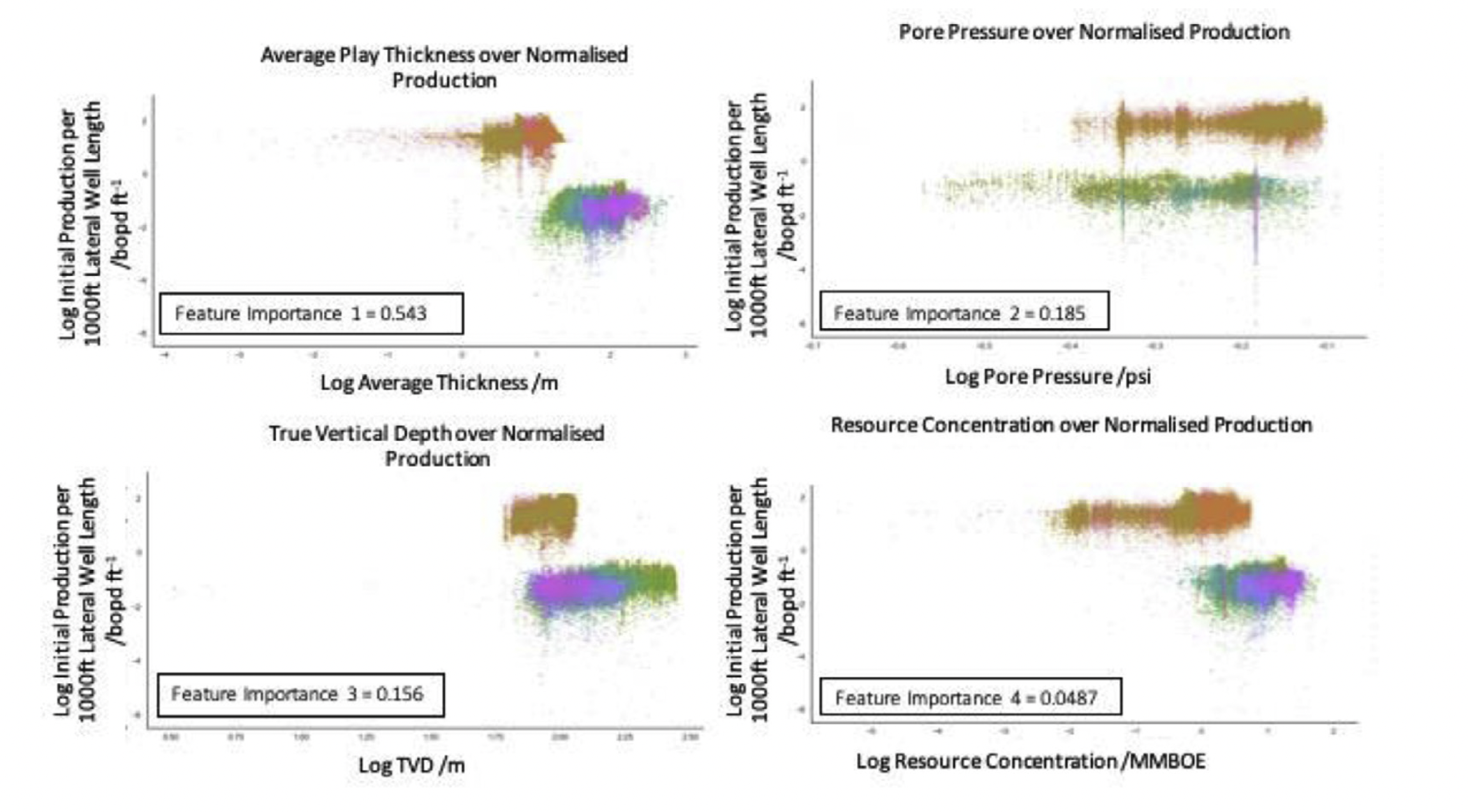
Unconventional shale reservoirs have had a major impact on the energy industry, but predicting production based on reservoir geology characterization has largely focused on identifying “sweet spots” rather than overall production trends across multiple plays.
In a recent study, we used machine learning techniques to analyze the relationships between well log data and production success in seven North American shale plays. We evaluated three different algorithms: a stochastic gradient descent kernel trained support-vector machine (SGD-SVM), a decision tree (DT) classifier, and a random forest (RF) classifier.
While the SGD-SVM and DT classifiers did not exceed an accuracy of 55%, a fine-tuned RF classifier was the most successful at predicting well success based on normalized initial production, with an accuracy of 97%. This was achieved by training the RF on input features such as average play thickness, pore pressure, TVD, and resource concentration.
Our research showed that the main factors impacting the performance of the algorithm in predicting success in unconventional plays are a strong understanding of heterogeneities in individual formations and consistent data availability across multiple wells. Despite these challenges, machine learning and the RF method in particular show promising applications in the unconventional petroleum industry as a means to streamline production and data collection.